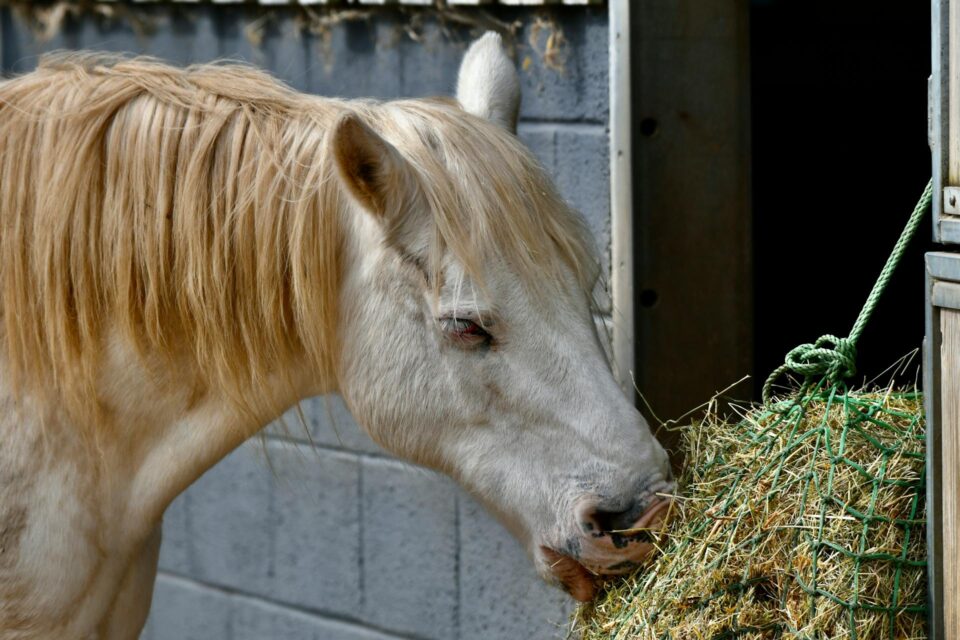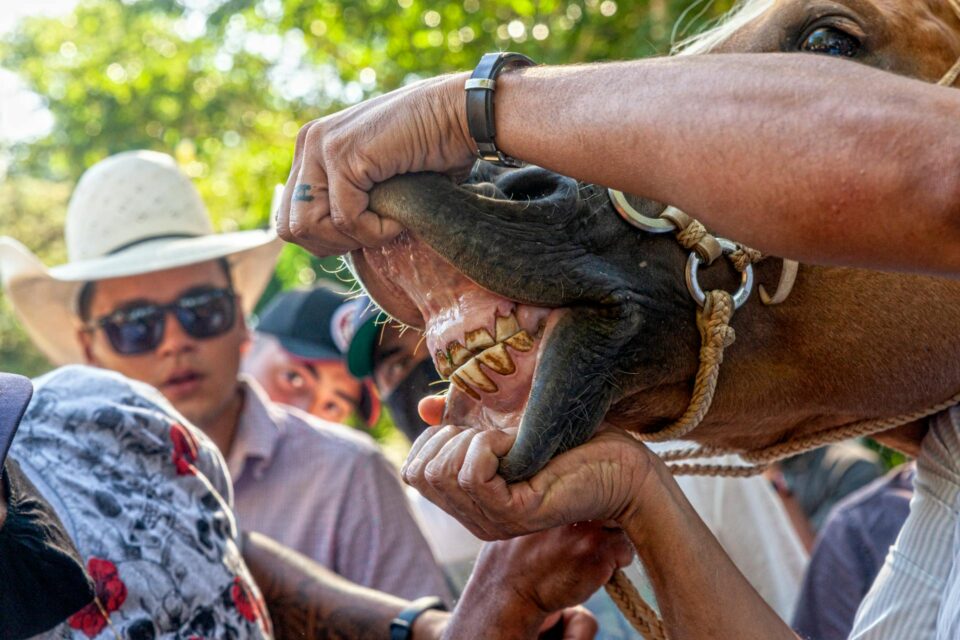Horse Teeth & Age: What’s the Connection?
Understanding how horse teeth relate to their age is important for any horse owner. Just like people, horses go through different stages of life, and their teeth change as they get older. This article will explore the connection between horse teeth and age, helping you learn how to care for your horse’s dental health throughout its life.
Key Takeaways
- Horses have different types of teeth that serve various purposes as they age.
- A horse’s teeth change in size and shape as they grow older, which can help determine their age.
- Regular dental check-ups are crucial for older horses to prevent health issues.
- Diet plays a significant role in keeping a horse’s teeth healthy throughout its life.
- Signs of dental problems in horses can affect their overall well-being and behavior.
Understanding the Anatomy of Horse Teeth
Understanding the different types of teeth in horses is essential for their care. Horses possess incisors, canines, and molars, each serving a specific purpose. The incisors are used for biting and cutting grass, while the molars grind food to aid in digestion. As horses age, their teeth undergo various changes, including wear and eruption patterns. This is important because healthy teeth contribute to a horse’s ability to eat properly and maintain good nutrition. Additionally, the functionality of these teeth is vital for their well-being, as dental issues can lead to complications in their diet and overall health.
How Horse Teeth Change With Age
As horses grow older, their teeth undergo significant changes that can tell you a lot about their age. You might notice that older horses have longer teeth, while younger ones tend to have sharper and less worn teeth. This difference is important because it helps you understand your horse’s dental health and overall well-being.
In addition to the length and sharpness of the teeth, the wear and tear on them can also indicate age. Over time, the surfaces of the teeth can become more worn, which is a natural part of aging. Keeping an eye on these changes can help you spot any potential issues early on.
Related: Top Signs Your Horse Might Be in Pain
Methods to Estimate a Horse’s Age by Its Teeth
When it comes to figuring out a horse’s age, examining their teeth can be quite revealing. The teeth of a horse change as they grow older, providing clues about their age. One way to estimate age is by looking at the eruption of their teeth. Young horses have baby teeth that fall out and are replaced by adult teeth, which can help you pinpoint their age.
As horses age, their teeth also show signs of wear and tear. This wear can indicate how old a horse is, as older horses tend to have more worn-down teeth. Additionally, keeping track of dental records can be beneficial. These records can provide a history of the horse’s dental health, which can help you understand their age better. Understanding these methods is essential for horse owners, especially when considering how to care for their aging horse. Regular dental check-ups can help ensure that your horse remains healthy as they grow older, addressing any potential issues that may arise with age.
Common Dental Issues in Aging Horses
As horses grow older, they can face various dental challenges that may affect their overall health. An overview of common equine dental diseases reveals that issues like gingivitis, tooth mobility, and calculus buildup can occur. These problems can lead to discomfort and affect how well your horse eats and digests food. One of the most frequently seen concerns is the formation of sharp enamel points on the premolars and molars. These sharp edges can cause irritation in the mouth, making it difficult for your horse to chew properly. It’s essential to keep an eye on your horse’s dental health, as it plays a significant role in their well-being. Regular check-ups can help identify any issues early on, ensuring your horse remains happy and healthy.
Professional Dental Care for Horses
Taking care of your horse’s teeth is essential for their overall health. Regular dental check-ups can help you spot any issues early on. Just like you, horses need their teeth checked by a professional to ensure they are in good shape. Choosing the right equine dentist is important; they should have experience and knowledge about horse dental care. During a dental examination, you can expect the dentist to look closely at your horse’s teeth and gums, checking for any signs of trouble.
Related: Horse Grooming 101: Why is it Important?
The Connection Between Dental Health and Overall Well-being
Your horse’s dental health is closely linked to their overall well-being. The state of your horse’s teeth and gums reveals a lot about their general health. When horses have dental issues, it can affect their ability to eat properly, leading to potential nutritional deficiencies. For instance, if a horse is dropping feed while eating, it may indicate a dental problem that needs attention. Additionally, dental health can influence a horse’s behavior; discomfort in the mouth can lead to changes in how they interact with their environment. Maintaining healthy teeth is essential for ensuring that your horse enjoys a good quality of life. Regular dental check-ups can help you stay informed about your horse’s dental condition and overall health.
From mane to teeth, every detail matters. Discover grooming products designed to support your horse’s overall wellness.

Conclusion
Understanding the connection between a horse’s teeth and its age is important for anyone who cares for these animals. By looking at their teeth, we can learn a lot about how old they are and how healthy they might be. Regular dental check-ups can help keep horses healthy and happy. Knowing how to read a horse’s teeth can also help owners make better choices about their care and feeding. Overall, taking care of a horse’s teeth is a key part of keeping them in good shape as they grow older.
~Veterinarian Recommended
